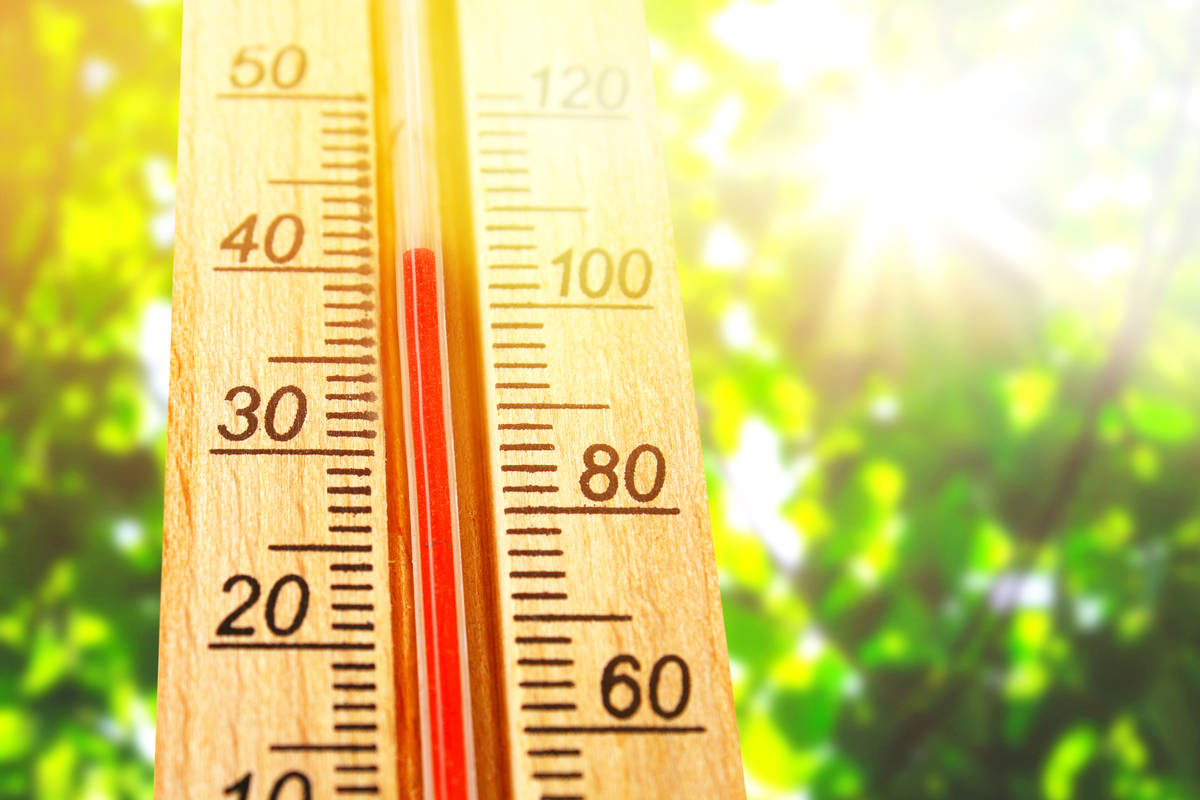
As record high temperatures have settled in Southern Nevada, officials are warning the public about the danger of exposure to excessive heat.
According to the Center for Disease Control (CDC), even though all heat-related deaths and illnesses are preventable, more than 600 people in the United States are killed by extreme heat every year. Heat-related deaths are considered one of the deadliest weather-related health outcomes in the United States.
The Pahrump Valley Times recently spoke with Dr. Ryan McComb, a family practice physician at Southwest Medical Pahrump Healthcare Center, who shared his advice on how to stay safe during the extreme heat.
He said one of the best ways to prevent overheating is to limit time in the extreme heat, stay hydrated and drink least 64 ounces of water, or more if you plan to spend time outside.
“Keeping cool and staying hydrated is the main thing that we can do to help prevent heat exhaustion, dehydration and heat stroke,” McComb said during the phone interview.
“The other thing is, also, don’t underestimate the risk of sunburn, which can happen after just 15 minutes of sun exposure. I always recommend everyone (to) wear sunscreen and try to cover up their skin as much as they can to prevent sunburn and also the risk of skin cancer,” he added.
Heat-related illnesses range from heat stroke and heat exhaustion to heat rash and sunburn. McComb said that certain groups, such as elderly people and young children are at higher risk for heat-related illnesses if they experience prolonged exposure to the extreme heat.
“The best way to stay safe is to minimize your exposure to the extreme temperature and maintain your hydration,” McComb said.
Among the first signs of overheating are thirst, heavy sweating, racing pulse and feeling hot, McComb said. More serious signs include muscle weakness, confusion, vision change and body temperature change.
“You need to go to the emergency room and get checked out right away you if you are starting to develop some of those things. If you notice your temperature actually increased, so now you have fever, … that’s a sign of a heat stroke, which is a true emergency, and you need to get to the emergency room right away for cooling down and hydration,” McComb said.
To help a person who is suffering from extreme heat exposure, McComb suggested bringing that person indoors, trying to put a fan on them and give them water.
“The basic treatment is do what you can to cool the person down and rehydrate them,” he added.
McComb also cautioned against spending long periods of time outside without bringing some water.
“Don’t ride your bike deep into the desert or something like that without water, because you will be putting yourself at risk,” he said.
“Also, keep in mind that you may be out of cell phone range if you are going into parks and what not, so don’t rely on being able to just call 911. If you are having trouble, you want to plan ahead and have a good water supply, and be able to get back to safety, if necessary,” he said.